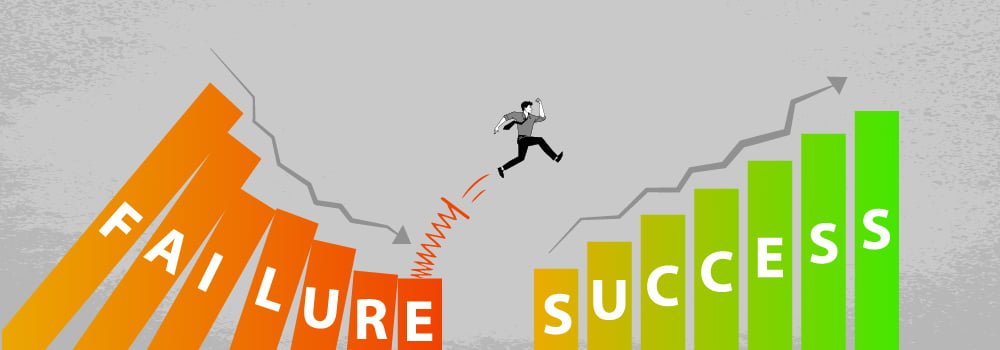-
Learning Opportunities: Failure is a teacher. It provides insights into what went wrong, what could have been done differently, and how to improve in the future. Without failure, we miss valuable learning opportunities.
-
Adaptability: Setbacks force us to adapt. When our initial plans or strategies don't work, we're compelled to find alternative solutions. This adaptability is a hallmark of resilience and can be applied to various areas of life.
-
Increased Grit: Grit is the ability to persevere through challenges. Failure can develop and strengthen grit, making individuals more resilient in the face of adversity. Those who've faced and overcome setbacks often possess a deeper well of determination.
-
Enhanced Problem-Solving: Failure encourages problem-solving skills. When we're faced with failure, we're required to think critically and creatively to find solutions, which enhances our ability to tackle future challenges.
-
Resilience to Stress: Overcoming failures can lead to a higher tolerance for stress. As we learn to navigate difficult situations, our stress management skills improve, helping us maintain composure in high-pressure scenarios.
-
Building Confidence: Rebounding from failure boosts self-esteem and confidence. Knowing that you can overcome setbacks and keep moving forward enhances self-belief and self-efficacy.
-
Humility and Empathy: Failure often leads to greater humility, as it reminds us that we're not infallible. This humility can also foster empathy, making us more understanding of others' struggles.
-
Long-Term Success: Many successful individuals have experienced multiple failures in their journeys. These experiences can be the stepping stones to long-term success, as they equip us with valuable skills and insights.
To embrace failure as an opportunity for growth and resilience:
-
Shift Your Perspective: Instead of seeing failure as a dead end, view it as a stepping stone on the path to success. Ask yourself, "What can I learn from this?"
-
Analyze and Reflect: After a setback, take time to analyze what went wrong and why. Reflect on what you could have done differently and what you've learned from the experience.
-
Set Realistic Expectations: Understand that setbacks are a normal part of any journey. Set realistic expectations, and be kind to yourself when they occur.
-
Cultivate a Growth Mindset: A growth mindset is the belief that abilities and intelligence can be developed. Cultivate this mindset by embracing challenges and seeing them as opportunities to grow.
-
Seek Support: Don't be afraid to reach out for support from friends, family, mentors, or therapists when facing significant setbacks. Talking about your experiences can help you process them and gain valuable perspectives.
-
Keep Moving Forward: After analyzing and learning from failure, don't let it paralyze you. Apply the lessons you've learned and keep moving forward toward your goals.
In conclusion, failure and setbacks, though often painful, are vital catalysts for personal growth and resilience. By embracing these challenges and learning from them, individuals can become more adaptable, resilient, and better equipped to overcome future obstacles. Remember, it's not the failures themselves that define us, but our response to them and the lessons we extract from the experience.




Comments (0)